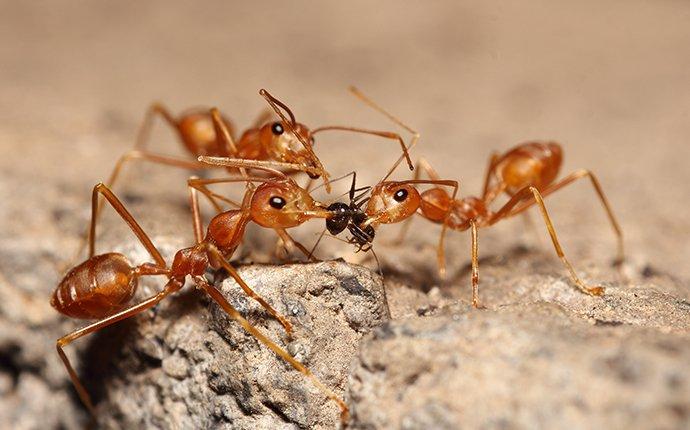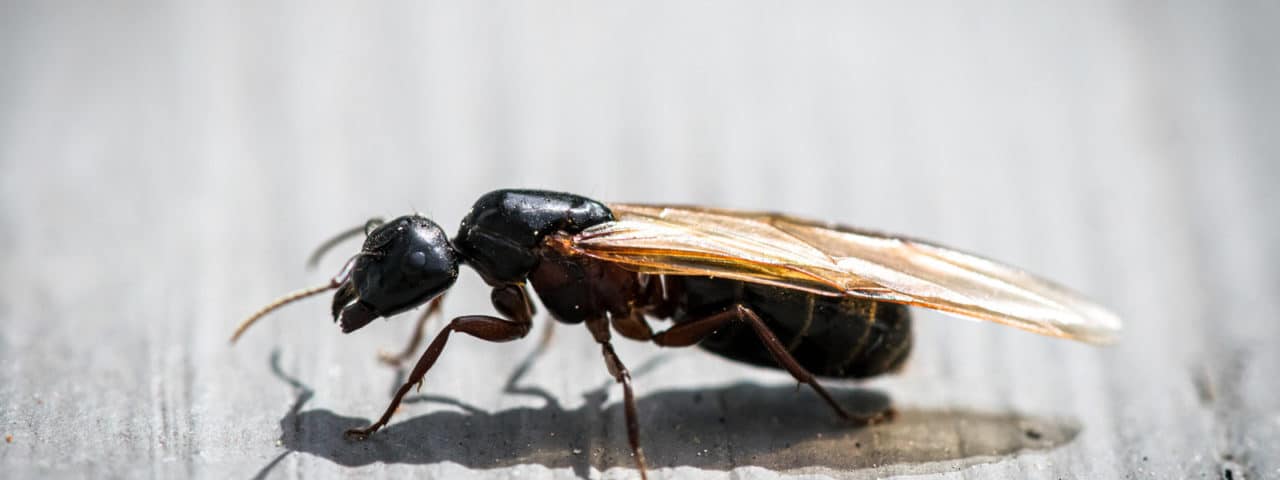Efficient Ant Control: Professional Services to Eliminate Ant Infestations
Environmental Impact of Parasite Control: Balancing Effectiveness With Sustainability
The ecological influence of insect control is a crucial concern that requires a delicate balance between accomplishing efficiency in making certain and managing parasites sustainability of our environments. From the usage of harmful chemicals that seep into our soil and water to the unintentional repercussions on non-target types, the consequences of standard parasite control techniques are far-reaching.
Hazardous Chemicals in Insect Control
The usage of damaging chemicals in pest control positions considerable environmental and health and wellness dangers that require cautious factor to consider and reduction strategies. Herbicides, chemicals, and insecticides are typically used to eliminate parasites, but their widespread application can lead to unintentional repercussions. These chemicals can infect dirt, water sources, and the air, affecting not only the targeted insects yet additionally useful insects, wild animals, and people.

To attend to these threats, incorporated parasite monitoring (IPM) strategies are being promoted as a much more sustainable alternative. IPM involves a combination of methods such as biological control, environment adjustment, and the targeted usage of chemicals as a last hope (ant control cherryville nc). By adopting a holistic method to pest control, we can decrease the ecological and health effects related to harmful chemicals while properly handling pest populaces
Influence On Non-Target Types
Thinking about the unintended effects of parasite control techniques, the impact on non-target varieties is an important facet that requires extensive examination. While parasite control actions intend to target particular bugs, other organisms in the ecological community might be unintentionally influenced. Non-target species, including helpful insects, birds, creatures, and also plants, can suffer indirect or straight injury from chemical applications or biological control methods.
Chemicals can have sub-lethal or deadly results on non-target species. Insecticides made to fight a particular insect parasite might harm pollinators like bees or all-natural killers such as ladybugs. Additionally, chemical deposits can gather in the environment, impacting non-target microorganisms over time. Biological control agents, if not species-specific, can position threats to unintentional targets, interrupting the eco-friendly balance.
To alleviate the influence on non-target varieties, incorporated bug administration (IPM) approaches that stress an all natural approach to pest control are recommended. These methods focus on the use of eco-friendly methods, lessening injury to useful organisms while properly handling pest populations. Conducting comprehensive risk assessments and keeping track of the results of parasite control efforts are necessary steps in safeguarding non-target species and advertising total environment health and wellness.
Soil and Water Contamination
Unintended environmental repercussions of insect control methods expand past affecting non-target species, with significant effects for dirt and water contamination. Chemicals, herbicides, and chemical plant foods made use of in parasite control can leach right into the dirt and infect groundwater, posturing a danger to both water and earthbound ecological communities. Soil contamination can disrupt the equilibrium of microbes crucial for nutrition cycling and plant development, leading to reduced soil fertility and productivity. These chemicals can continue in the setting for extended durations, building up in the dirt and possibly entering the food chain.
Water contamination is another crucial problem connected with bug control techniques. To minimize dirt and water contamination from bug control tasks, incorporated insect administration methods that prioritize sustainability and minimize chemical inputs are essential.
Air Pollution From Pesticide Use
Exposure to air-borne chemicals during farming applications postures a significant concern for air contamination control actions. When chemicals are splashed onto plants, they can volatilize into the air and type volatile natural substances (VOCs) and various other airborne pollutants. These chemicals can contribute to the formation of ground-level ozone, a significant element of smog that can have harmful effects on human health and wellness, crop performance, and total air high quality. In addition, chemical drift, where pesticides are lugged by the wind to unexpected areas, can bring about the contamination of close-by ecosystems and water bodies.

Approaches for Sustainable Parasite Control
In the realm of agricultural methods, applying lasting insect control methods is vital for preserving environmental equilibrium and securing plant returns. Lasting insect control stresses the use of eco-friendly techniques to take care of parasite populations successfully while reducing damage to non-target organisms and ecological communities. Integrated Parasite Management (IPM) is a commonly embraced method that integrates biological, cultural, physical, and chemical control techniques to accomplish long-lasting bug monitoring options.
One trick approach in lasting parasite control is advertising biodiversity within agroecosystems. By improving all-natural opponents of bugs, such as parasitoids and killers, farmers can minimize the demand for synthetic pesticides. Crop turning and diversity are likewise effective techniques to disrupt pest life cycles and create much less favorable problems for bugs to flourish. Furthermore, using pest-resistant crop varieties and using methods like trap chopping can aid minimize bug pressure without relying greatly on chemical treatments. Ultimately, by incorporating these lasting insect control strategies, farmers can achieve a balance in between pest administration performance and environmental stewardship.
Verdict
Finally, the environmental influence of pest control techniques must be very carefully considered to balance performance with sustainability. Hazardous chemicals utilized in insect control can result in dirt and water contamination, air contamination, and damage non-target types - ant control. It is vital to implement sustainable bug control approaches to reduce ant control lexington nc these unfavorable results on the environment and promote a healthier environment for future generations
By taking on a holistic method to pest control, we can reduce the ecological and wellness impacts associated with dangerous chemicals while properly taking care of pest populaces.

To minimize the air pollution caused by pesticide usage, it is vital to adopt incorporated parasite administration methods that prioritize the use of non-chemical parasite control methods, such as plant turning, natural predators, and immune crop selections. Sustainable bug control emphasizes the use of environmentally pleasant methods to handle parasite populaces efficiently while decreasing harm to non-target microorganisms and environments. Integrated Pest Administration (IPM) is a widely embraced approach that combines biological, social, physical, and chemical control approaches to attain long-term insect administration options.